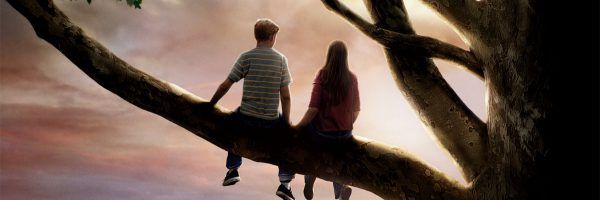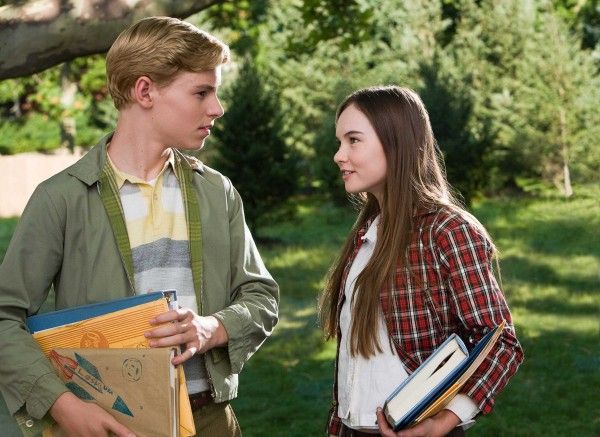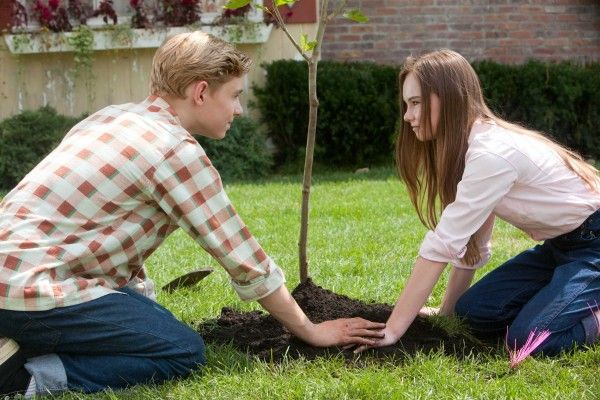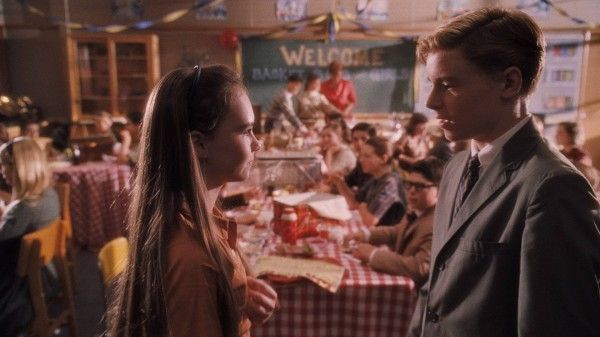Rob Reiner gave an interview on CBS Sunday Morning News prior to the theatrical release of his latest film Flipped in which he candidly admitted to host Charles Osgood: “I basically tell the same love story over and over. The girl in the story is always much more emotionally mature... the boy is always running around like an idiot trying to catch up, trying to figure out what's going on."
Indeed, one need only look at the director’s resume to find validity in that statement. The man has long told stories about relationships (1989’s When Harry Met Sally … for example), but never quite as pleasantly as he does in Flipped, a familiar but plucky love story of boy meets girl, who loves boy, who doesn’t love girl, who soon grows tired of boy, who suddenly loves girl. The film is easily one of the director’s best efforts since 1997’s The American President. Continued after the jump:
Set in one of those clean-as-a-whistle 1950s suburban neighborhoods, Flipped (based on the book by Wendelin Van Draanen) follows Juli (Madeline Carroll) and Bryce (Callan McAullife), two young children with varying perspectives on not only each other, but life as well. Juli hails from a poor home with her landscape painting pop (Aidan Quinn, looking every bit like Mel Gibson’s disheveled brother), dutiful mom (Penelope Ann Miller) and a cappella-singing bros (Shane Harper, Michael Bolten); they have no grass, and possess only a beat up old truck and a small chicken-infested backyard. Yet, they look out for one another – they work on science projects together, read books in the same room and sing at the dinner table; when Juli’s favorite sycamore tree gets axed, its dear-old-dad who dries her tears and saves the day.
Bryce’s family, on the other hand, lives in a polished home and reflects that oft-dissected myth of the American Dream, particularly in regards to Anthony Edwards’ emotionally repressed, verbally abusive, douche bag-of-a-father. Bryce’s family remains visually afoot, but emotionally distant, which explains the young man’s early disapproval of Juli’s more carefree ways.
The film jumps back and forth from each child’s point of view, mainly in regards to their romantic discovery. So we get Juli’s inner thoughts about the first day she met (and “flipped” over) Bryce, his “dreamy eyes” and the way his hair smells like watermelon, before the film recreates the same series of events but with Bryce’s narration – think Laetitia Colombani’s He Loves Me … He Loves Me Not (2002) mixed with Pete Travis’ Vantage Point (2008), except without the psychotic bits or assassination plots. A better title might have been When Bryce Met Juli: The Wonder Years.
As Bryce’s affection for Juli increases (and vice versa), so does their awareness on familial issues. We are privy to a visit Juli and her father make to a hospital, where her mentally challenged uncle lives. Later on Bryce experiences firsthand an intense encounter between his father and sister. A dinner brings the families together, and helps both children better understand their parents’ sometimes bizarre behavior. It’s this knowledge that draws Juli and Bryce closer towards each other. Flipped isn’t about what happens when two people fall in love, but rather how certain personalities are magnetically drawn to one another due to fate’s design.
What makes Reiner a terrific director is his ability to channel innocence without succumbing to cynicism, or irony. His films, at times, may seem corny, or trite; but they are almost always good natured (1990’s Misery notwithstanding) and candy coated with a positive outlook towards life. The director sets his tales in the real world, but then blankets them with colorful whimsy – in this case Thomas Del Ruth’s delicious cinematography – that occasionally gives way to harsher truths. In Flipped you can hear said truths – money issues, parental abuse, pornography, rock n’ roll rebellion – knocking on the door, itching to storm in and ruin the show. For now, Juli and Bryce contently ride their bicycles to school, oblivious to the world around them, but more aware of its growing presence.
Reiner has made a handful of great films (This is Spinal Tap, A Few Good Men), but none quite in this vein. In Flipped he hearkens back to the days of cooties and playing tag at recess, when love was a natural curiosity, not a dramatic burden. Flipped is nostalgic for yesteryear, and homesick for the virtue of youth.
As presented on Blu-ray, Reiner’s film sparkled with a newly pressed 1080p coating. The image is incredible, with nary a grain in site (though Reiner’s use of blue screen becomes more apparent in the HD format). This is one of the better looking titles I’ve seen on the format, what with its radiant colors, and Janusz Kaminski-ish photography.
The extras presented offer a few comical behind-the-scenes moments, including Carroll and McAullife’s “embarrassing” first kiss, but little more. All told the extras come to around 18-minutes, or so, in length, but provide nothing of substance. I would like to have had a commentary with Reiner and the cast, or something regarding the film’s novel-to-screen process. Still, at least I get my Digital Copy.
Looking at Rotten Tomatoes, I was surprised at the negative reaction Flipped received (56% - ouch). That’s telling of the times, I suppose.




